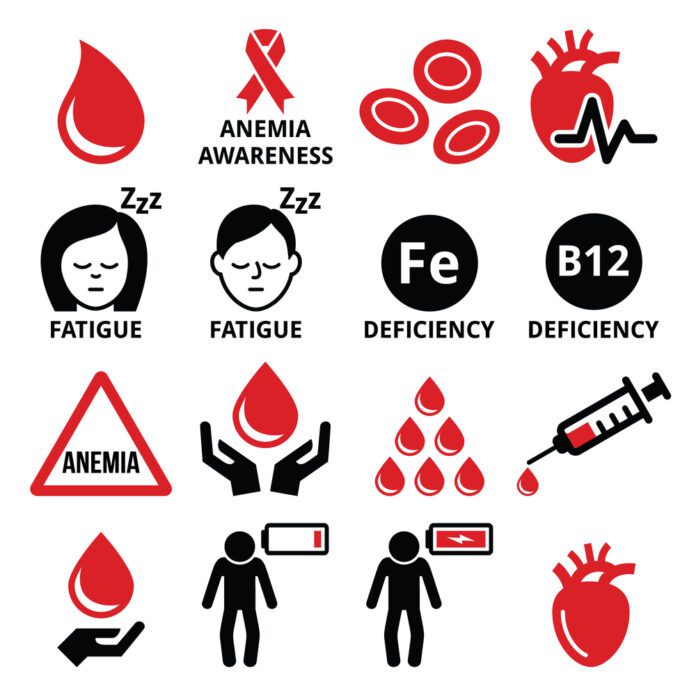Overview Of Folate Deficiency Anemia
Folate Deficiency Anemia is a decrease in red blood cells (anemia) due to a lack of folate. Folate is a type of B vitamin. It is also called folic acid.
Anemia is a condition in which the body does not have enough healthy red blood cells. Red blood cells provide oxygen to body tissues.
Commonly Associated With
Folic Acid Deficiency Anemia
Causes Of Folate Deficiency Anemia
Folate (folic acid) is needed for red blood cells to form and grow. You can get folate by eating green leafy vegetables and liver. However, your body does not store folate in large amounts. So, you need to eat plenty of folate-rich foods to maintain normal levels of this vitamin.
In folate-deficiency anemia, the red blood cells are abnormally large. Such cells are called macrocytes. They are also called megaloblasts, when they are seen in the bone marrow. That is why this anemia is also called megaloblastic anemia.
Causes of this type of anemia include:
- Too little folic acid in your diet
- Hemolytic anemia
- Long-term alcoholism
- Use of certain medicines (such as phenytoin [Dilantin], methotrexate, sulfasalazine, triamterene, pyrimethamine, trimethoprim-sulfamethoxazole, and barbiturates)
The following raise your risk for this type of anemia:
- Alcoholism
- Eating overcooked food
- Poor diet (often seen in the poor, the older people, and people who do not eat fresh fruits or vegetables)
- Pregnancy
- Weight loss diets
- Folic acid is needed to help a baby in the womb grow properly. Too little folic acid during pregnancy may lead to birth defects in a baby.
Symptoms Of Folate Deficiency Anemia
Symptoms may include:
- Fatigue
- Weakness
- Headache
- Pallor
- Sore mouth and tongue
Exams & Tests
The health care provider will perform a physical exam.
Tests that may be done include:
- Complete blood count (CBC)
- Red blood cell folate level
- In rare cases, a bone marrow examination may be done.
Treatment Of Folate Deficiency Anemia
The goal is to identify and treat the cause of the folate deficiency.
You may receive folic acid supplements by mouth, injected into a muscle, or through a vein (in rare cases). If you have low folate levels because of a problem with your intestines, you may need treatment for the rest of your life.
Diet changes can help boost your folate level. Eat more green, leafy vegetables, and citrus fruits.



